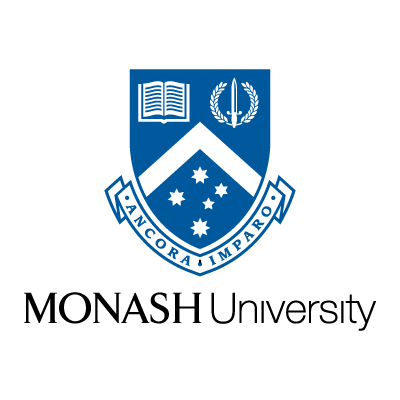Commerce and Biomedical Science
Monash University
About
Biomedical science is one of the most contemporary areas of medicine - think IVF, a cure for cancer, and new life-saving vaccines.
This rapidly-growing industry requires people with the skills to commercialise biomedical research, or apply commercial knowledge and understanding in research environments.Within this double degree course, you have the opportunity to develop the technical and research skills required in the biomedical fields, while also having a strong understanding of the realities of research as a commercial endeavour.
Structure
Double degree courses allow you to study towards two different degrees at the same time, and graduate with two separate qualifications. And because a required subject in one course can count as an elective in the other, our double degrees take two years less than if you studied for the two degrees separately.
The Bachelor of Commerce is a comprehensive course, structured in three equal parts. In the double degree course you complete:
A. Commerce specified study
This will provide you with a broad foundation for your study of commerce and expose you to several commerce disciplines. This will contribute breadth to your knowledge of commerce and address the graduate course outcomes. It will also give you the opportunity to learn more about each discipline before finalising your choice of major.
B. Commerce listed major
This will provide you with a focused program of study that will develop your expertise in one discipline area. You will develop, apply and communicate an advanced level of understanding of the concepts and theoretical frameworks that constitute the knowledge base of your major area of study.
The Bachelor of Biomedical Science is a specialist course that provides an interdisciplinary approach to study of biomedical science, with five central themes: molecular and cellular biology, body systems, infection and immunity, disease and society and diagnostic and research tools. These themes are interwoven in units throughout the course.
A. Molecular and cellular biology
Through these studies you will learn how the cell functions and replicates itself in health and disease, particularly considering the structure of the cell and its evolution, the function of cells, DNA, genes and proteins, and the regulation of metabolism.
B. Body systems
This theme addresses the principles of major body systems. You will learn how cells come together to form tissues and organs and how they work together in the body to provide it with its metabolic needs and remove waste products. You will study how structure follows function; homeostasis; the nutritional and GI system; the neural system and senses; endocrine, reproductive and renal systems; and cardiovascular and respiratory systems.
C. Infection and Immunity
The focus of these studies is the functional immune system of multicellular organisms and the disease states that result from pathogen infection and from autoimmunity. You will learn about molecular genetics and recombinant DNA (both important tools for the study of microbial disease and immunity), inflammation and disease, and infection and infection control.
D. Disease and society
In these studies you will learn about disease states that result from abnormal function in various body systems, including the cellular, genetic and molecular causes of the disease, with a focus on mechanisms of disease and patterns of disease and treatment. In studying the basis for human disease, you will also consider the societal and personal impacts of past, present and future diseases and the social, economic and environmental factors that are determinants of health.
E. Diagnostic and research tools
These studies address both the molecular and cellular tools, including specialist imaging techniques, that can be used to study and diagnose diseases.
Entry requirements
Qualifications
Equivalent Australian Year 12
Recent secondary education
ATAR requirements
ATAR
94.75
Note Lowest Selection Rank to which an offer was made88
Note Monash guarantee for 2021 entry88.05
Note Lowest ATAR to which an offer was made ATAR Calculator Monash is committed to admissions transparency. View the ATAR and student profiles for this course.Subject prerequisites
All applicants must satisfy the following prerequisites or their equivalents.
Australian VCE subjects
English
Units 3 and 4: a study score of at least 30 in English (EAL) or at least 25 in English other than EAL
Maths
Units 3 & 4: a study score of at least 25 in one of Mathematical Methods(any), Specialist Mathematics or Physics
Sciences/Other
Units 3 & 4: a study score of at least 25 in Chemistry
IB subjects
English
At least 4 in English SL or 3 in English HL or 5 in English B SL or 4 in English B HL
Maths
At least 4 in Mathematics SL or 3 in Mathematics HL or 3 in Further Mathematics HL or 4 in Physics or 3 in Physics HL
Sciences/Other
At least 4 in Chemistry SL or 3 in Chemistry HL
VET Study
Higher education
All applicants must satisfy the equivalence of the VCE subject prerequisites.
Applicants will require a minimum of one year of full time study (48 credit points) from a recognised university with a minimum of 70% average across all their units. Preference will be given to applicants whose prior studies are related to the course.
Work and life experience
Multiple pathways to this course
Applicants who have successfully completed Year 12 are eligible to apply for this course.
Applicants with no formal secondary or tertiary qualifications are not eligible to apply for this course. This course uses the entire academic record as part of its selection considerations.
If you don't meet the published requirements for entry, you may want to consider one of the Pathway options
Alternative qualifications and prerequisites
For other domestic and international qualification entry requirements and scores for this course use the study credit and admissions eligibility search.
English requirements
Applicants must also meet the English language requirements.
University entrance requirements
Minimum entrance requirements for admission to Monash University Australia.
Learning outcomes
Learning outcomes
Students in the double degree course achieve the Course Outcomes of the two partner courses.
Institution
